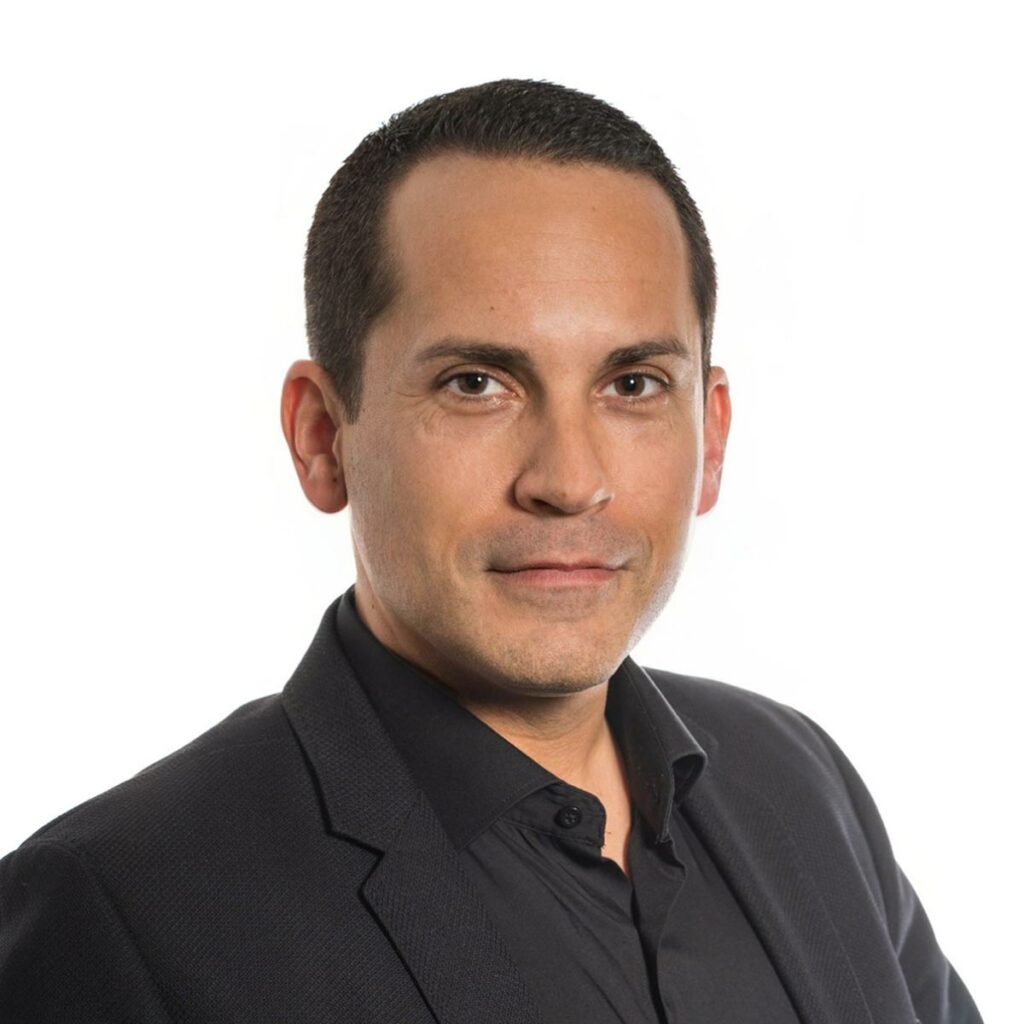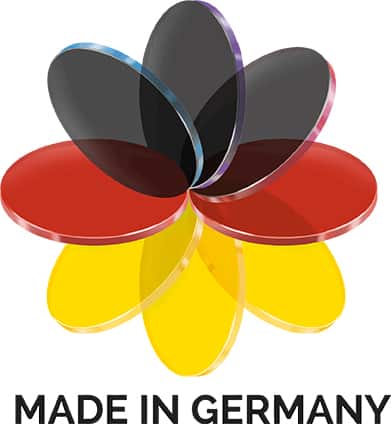Fit for the future!
Reflections on challenges and opportunities for labs
Reflections on challenges and opportunities for labs

In the MAFO interview „Fit for the Future – Challenges and Opportunities for Medium-Sized Manufacturers“, MAFO editor Rebekka Nurkanovic talks to Florian Gisch about ways to prepare the company for the future and which driving factors play a role.
Global crises and technological developments relentlessly force us to readjust and it may seem more difficult than ever to anticipate challenges and opportunities. Still, it is worthwhile to try and plan for success. Florian Gisch, Managing Director of the independent lab Wetzlich Optik-Präzision GmbH is in the process of making his company fit for the future. MAFO has asked him to share his thoughts about factors that drive change and how to prepare as best as possible for what might lie ahead.
By Rebekka Nurkanovic
Florian Gisch: We have probably never seen as many challenges in our lifetime as in the 20’s. So I will try to at least assort them into categories:
Political
The COVID crisis has finally lead to a strong trend for a nationalization of tasks and governments are setting the rules for economy much more
than we have been used to in the past. Especially in regards to trade barriers and regulation of medical product imports, which finally both aim at market protection and decreasing dependency by increasing local production, we are currently in a time of unpredictability.
Energy
Especially energy costs have been quite a driving force in 2022 and will remain such in the upcoming years. It is quite conflicting to enforce a trend to go local with production on the one hand and to raise energy costs at the same time to a level, which prevents international competitiveness. Especially since this is not organized equally EU-wide, the different energy price limitations etc. will also have an influence on the location of optical industry in Europe, since it is a relatively energy intensive business. In our case, energy costs have been a major factor for relocating the company to a new building to guarantee a future of a „Made in Germany“ production.
Sustainability
Energy efficiency is just one part of a sustainability strategy. Also, here there is a strong political influence on the future of labs in Europe. Will a local sustainable, clean and energy saving production get protected in any way from international markets where these targets have minor priority? We robably see a tendency to do so, but lawmaking processes are slow and in business life I do not yet see the acceptance of higher prices for such production in a decent way.
Chain creation
Besides the traditional major players, we have many growing smaller chains throughout Europe. I currently have the impression that there is quite a need among these smaller players to differentiate from the major players, and that is surely a chance for smaller labs.
Technical limits and disruptive technologies
During the past decades we became quite used to the fact that there is always a new material, a new production technique, a new design or a new coating, which pushed the market forward and allowed for a classical product lifecycle planning. The product “ophthalmic lens” has become quite mature during this time and will only allow for smaller adjustments, which will probably not be the “new big thing” – in many ways technical limits are reached. In such a mature market, it is all about efficiency of production, creating volume to achieve a perfect capacity usage, and it is a lot about economies of scale, which is why we see quite a tendency to build up mass production setups instead of smaller labs. On the other hand, smaller labs have the flexibility to specialize and to react more quickly to disruptive technologies. Not only for labs, but also for the big players, the biggest challenge in a long term is obviously to be expected from disruptive technologies in the field of smart glasses. When big tech enters the market with such – and it is not a question of if, but only when – we can probably expect similar scenarios like in the watch industry.
Florian Gisch: I personally expect consolidation to have the biggest impact. As a mid-sized lab, we simply have to face the fact that it is not our business anymore to supply a major player in retail business with 1.50 HMC stock lenses and surely also not spherical SV RX lenses. All previously mentioned developments strongly speak against a future and competitiveness in such fields.
Florian Gisch: There are quite different strategies to cope with the challenges and changes. To make it short, all answers are to be found in differentiation, specialization or verticalization. Differentiation can e.g. be also created by a local production to benefit from the “go local” trend. Specialization is probably the most difficult one, since there is a strong tendency among all market players to copy any kind of specialization and to just have one more page in the catalogue. Sports, edge filters and high prescription lenses are just a few examples for such. Verticalization is finally the trend among a few players to enter B2C business.
Florian Gisch: I actually do not think that this is an issue that only affects smaller labs but also the big international players. We are living in times in which one disruptive technology can also change the market overnight for them. We have not seen “the smart glasses solution” with the perfect look and a killer application yet, which consumers would consider to have that superior advantage compared to traditional glasses. But that can be released anytime. We will obviously not be the one releasing it – chance is high that it will be big tech releasing such. To be realistic, they will be the ones deciding what will be the part of the traditional optical industry and also of the retailers. Anyway, also here I think it is much easier for a lab to
adapt to such changes than for a worldwide player.
Florian Gisch: As mentioned previously, we have just moved with the lab to a new location, and it is simply all about a sustainable production, a maximum of automation and a better software integration of retailers in regards to order systems and failure prevention. Sustainability is mainly driven by the production setup and the building itself, which are mostly responsible for usage of energy and other resources as for example water. Waste prevention and disposal have a long tradition in Germany – so I guess we are well prepared for that. Automation is an issue that mid-sized labs – including us – did not focus enough on in the past, mostly driven by a suboptimal building, in which further automation would have led to disproportionately high costs. Meanwhile, a new factor to take into consideration when it comes to automation is obviously energy costs. In the past, it could be ignored that every assembly belt and every robotic solution has quite some energy consumption. Cost calculations for such obviously had to be revised in 2022.
Florian Gisch: That besides all technical aspects, automation, order interfaces, etc., the business is about having satisfied customers.
MAFO: Thank you for the interview!

We have been manufacturing lenses with the highest precision and innovative strength in Germany at our site in Viersen on the Lower Rhine since 1935.
We not only ensure that you simply see better and more with our products. For years, we have been developing lenses that provide optimum protection for your eyes. This includes, for example, our UV and infrared protection coating as well as innovative lens materials that filter blue light and increase contrast.
With one of the most modern European machine parks, we stand for advanced products with the highest quality standards at fair prices.
You can obtain Wetzlich lenses from your optician. Simply ask him about our lenses or find a Wetzlich partner optician in our optician search.
You need to load content from reCAPTCHA to submit the form. Please note that doing so will share data with third-party providers.
More InformationYou are currently viewing a placeholder content from Facebook. To access the actual content, click the button below. Please note that doing so will share data with third-party providers.
More InformationYou are currently viewing a placeholder content from Google Maps. To access the actual content, click the button below. Please note that doing so will share data with third-party providers.
More InformationYou are currently viewing a placeholder content from Instagram. To access the actual content, click the button below. Please note that doing so will share data with third-party providers.
More Information